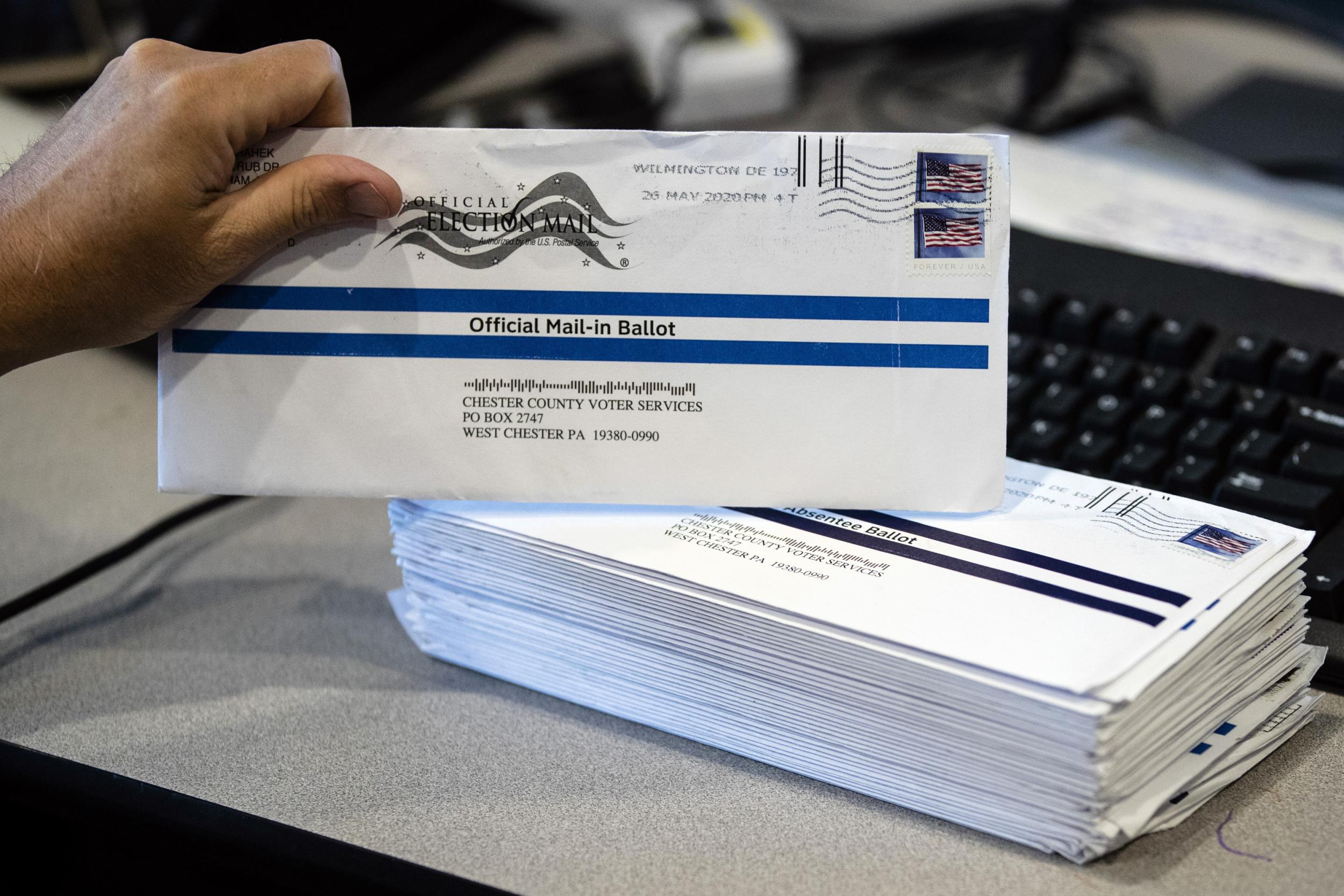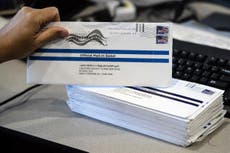Wisconsin supreme court blocks delivery of mail-in ballots a week from dispatch deadline
The case adds another layer of uncertainty to an already strained mail-in ballot process

Wisconsin’s supreme court has ordered a halt to the delivery of mail-in ballots just a week away from the deadline by which they must be sent to voters.
The decision was split along partisan lines, with conservative justices ruling that the process should be halted while the court considered whether the Green Party’s candidate should be added to the presidential ticket.
The decision is likely to add another layer of uncertainty to the mail-in voting process in the battleground state of Wisconsin, which is already facing unprecedented challenges due to the coronavirus pandemic.
The Wisconsin supreme court ruling centres around a dispute from Green Party presidential candidate Howie Hawkins. The state’s Elections Commission rejected the party’s request to be placed on the ballot due to the listing of two different addresses on petitions for Mr Hawkins’ running mate — which brought the pair below the threshold needed to be included.
The outcome of this case, coupled with the disruption it may cause the mail-in voting process, could have a determining effect on the election result.
Wisconsin has become a key focus for both presidential campaigns in recent weeks, following a spate of violent protests in the city of Kenosha. Both Donald Trump and his Democratic rival Joe Biden visited the city within days of each other.
Mr Trump won the state by a margin of 22,748, or 0.77 percent, in 2016. The Green Party’s 2016 nominee, Jill Stein, received more than 31,000 votes in Wisconsin — greater than the margin of Mr Trump’s victory.
The effect of the ruling to delay the ballots being sent may also hamper the already challenging process of dealing with an unprecedented number of mail-in requests.
The number of people choosing to vote by mail has risen dramatically in the state since the outbreak began, due to efforts to minimise the spread of the virus. In 2018, only 6 percent of voters cast their ballot by mail. In primary elections this April, during which stay-at-home orders were in place, that number rose to more than 60 percent.
As he has trailed in the polls in recent weeks to Mr Biden, Mr Trump has attacked mail-in voting as unsafe and vulnerable to fraud, without providing any evidence. In tandem with those attacks, the Trump campaign and the Republican National Committee have sought to block the expansion of mail-in voting in the courts in crucial swing states.
Gordon Hintz, the Democratic Leader of the Wisconsin State Assembly, accused the court of “acting politically” by attempting to slow down voting-by-mail.
“The current Wisconsin State Supreme Court majority is a national embarrassment,” he said in reaction to the decision, which was passed in 4-3 vote partisan vote between conservative and liberal justices.
As part of its ruling, the court asked the state’s election commission to provide the names and addresses of everyone who has been mailed a ballot, and the date it was sent. According to the Wisconsin State Journal, as many as 378,000 ballots may have already been sent out.
Meagan Wolfe, the executive director of Wisconsin’s Elections Commission, said in a court filing this week that there is not enough time to reprint the ballots.
“It would be catastrophic to this election if ballots were to change after being sent to some or all electors,” she said in an affidavit.
“Municipalities that have already begun sending ballots would have to send a second ballot, which could result in voters returning the wrong ballot or multiple ballots. This would create a chaotic situation for election officials in paring and counting returned ballots,” she added.
Wisconsin state law requires mail-in ballots to be sent to voters by a deadline of September 17. Whether that deadline can now be met is unclear.


Join our commenting forum
Join thought-provoking conversations, follow other Independent readers and see their replies
Comments